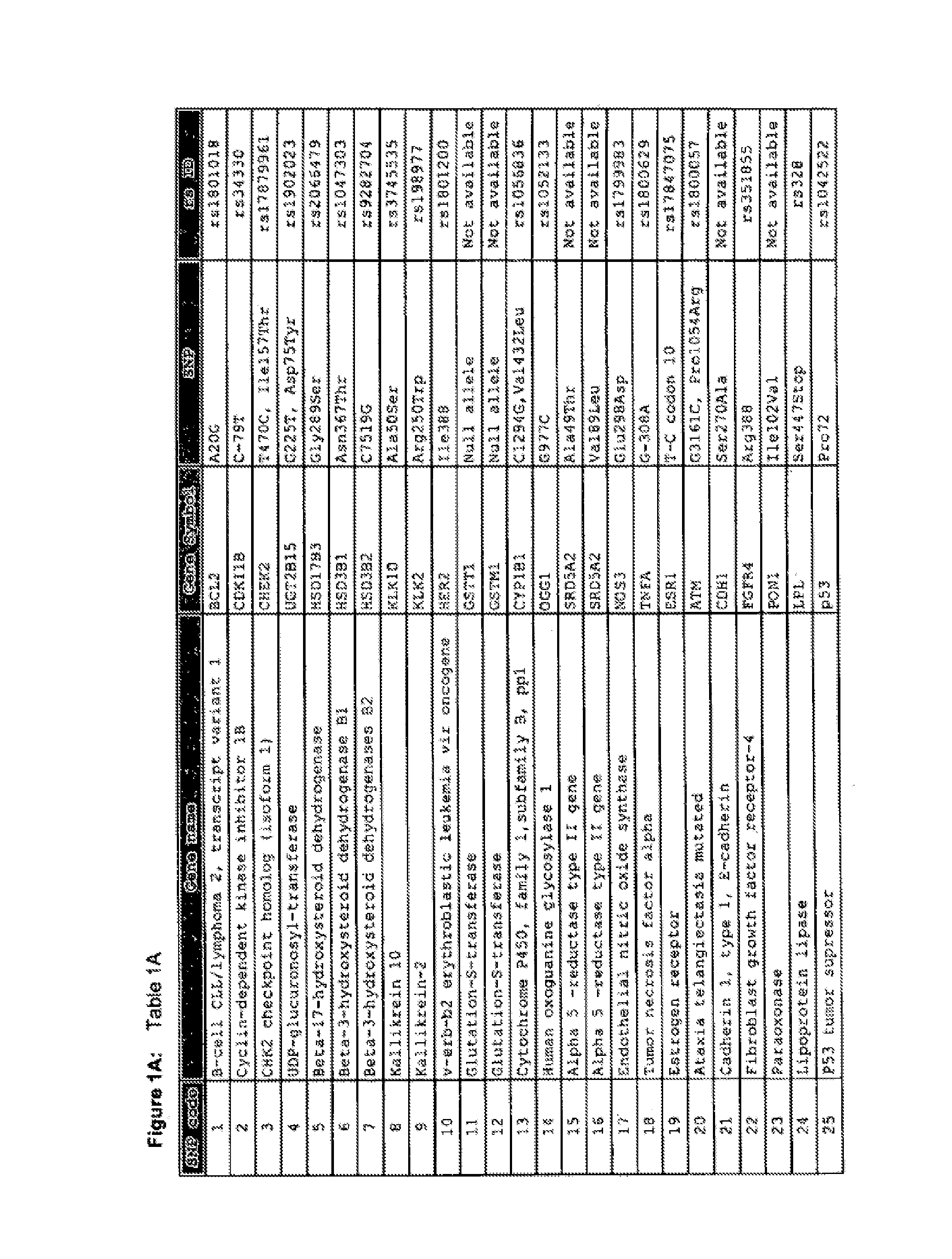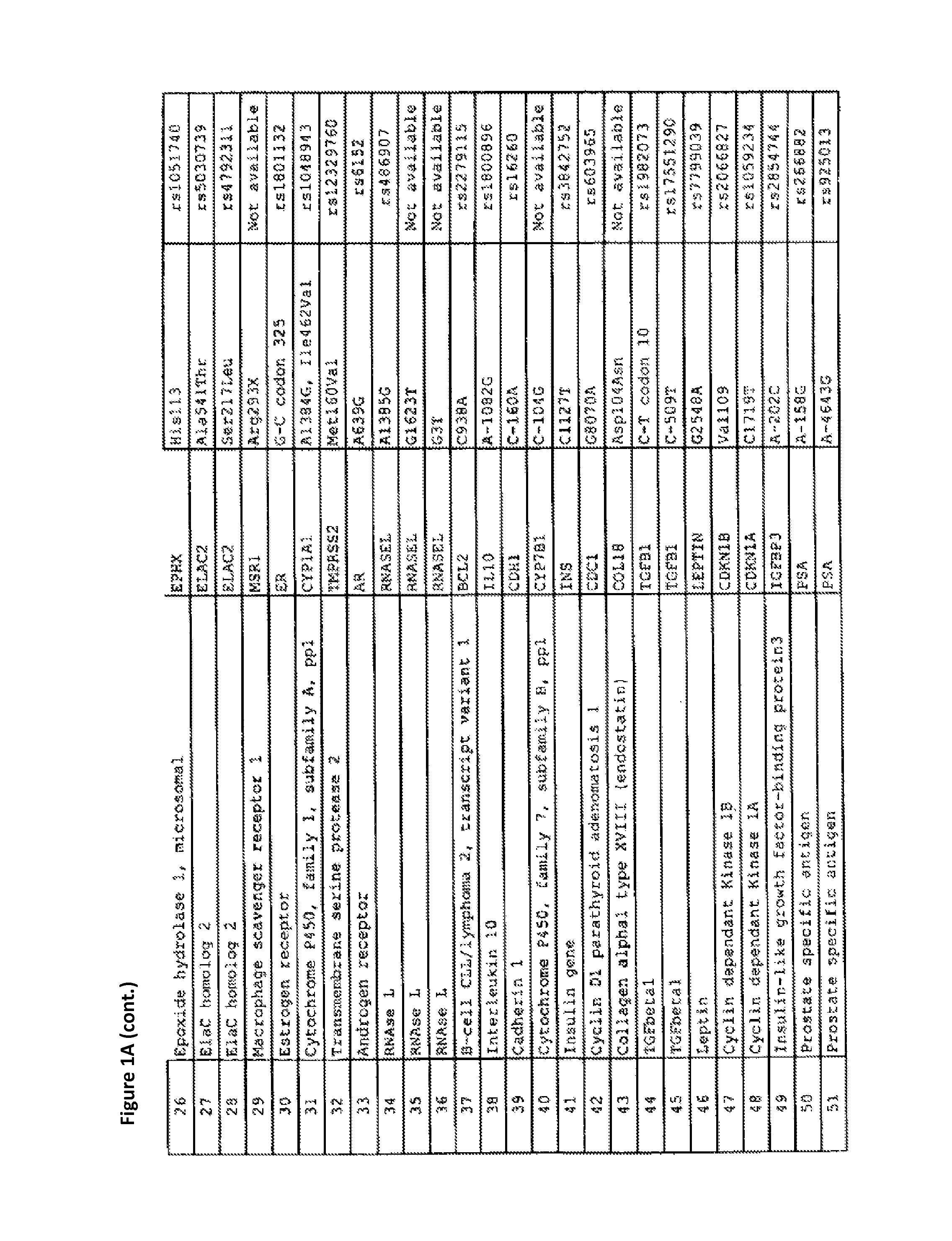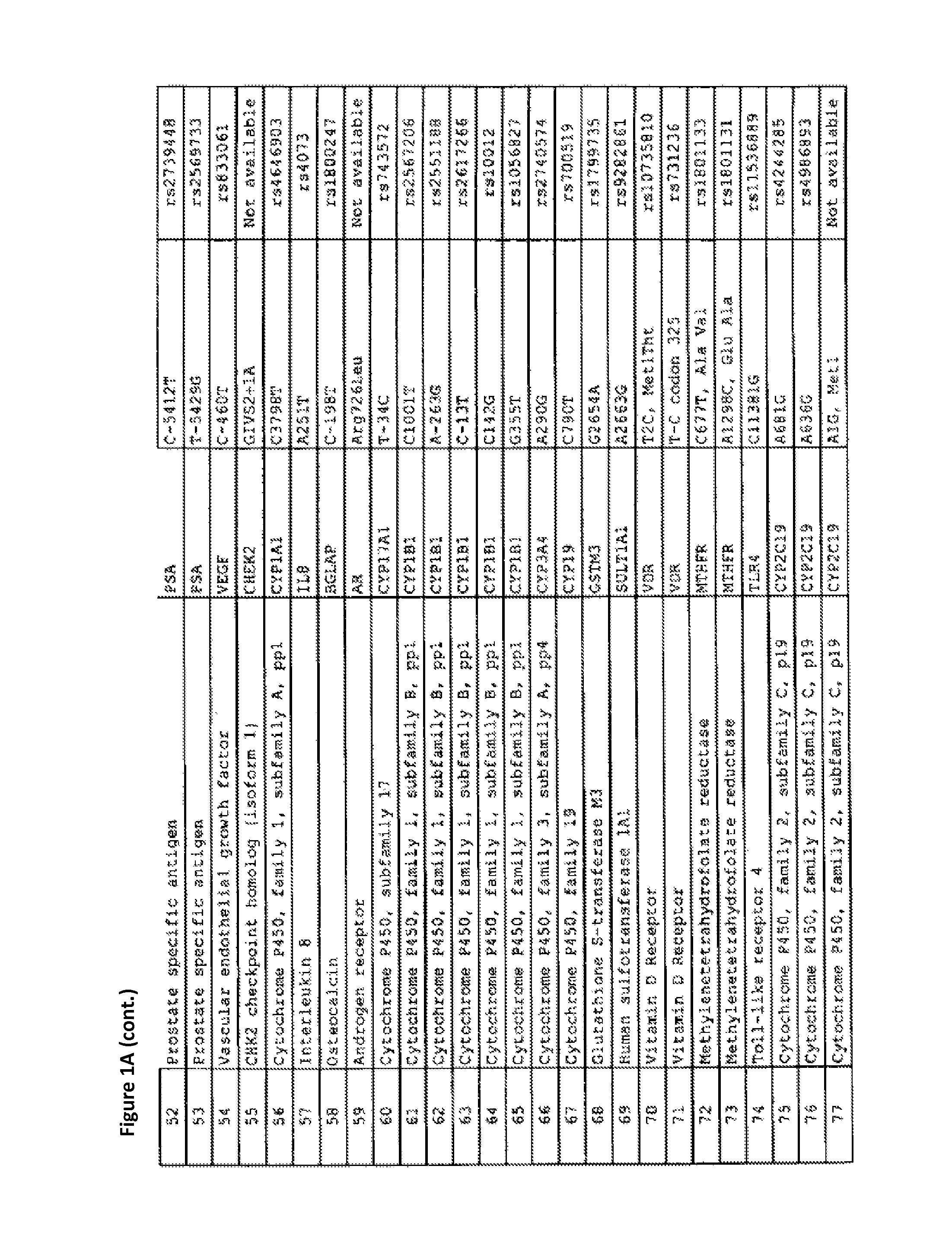Prognostic method
a technology of prognosis and method, applied in the field of microarrays, can solve the problems of poor prognosis, inability to accurately predict psa recurrence, and more likely to develop metastatic lesions
- Summary
- Abstract
- Description
- Claims
- Application Information
AI Technical Summary
Benefits of technology
Problems solved by technology
Method used
Image
Examples
example 1
Detection of PCa Associated Human Genetic Variations Using a DNA-Chip According to the Invention (Proscan)
1.1 Design of the DNA-Chip for Genotyping PCa Associated Genetic Variations
[0390]A DNA-chip to detect human genetic variations associated with PCa which permits simultaneous, sensitive, specific and reproducible detection was designed and manufactured. The said genetic variations are related to a greater or lesser risk of suffering from PCa, a better or worse response to treatment and also a better or worse prognosis of the disease. Illustrative examples of human genetic variations associated with antigens connected to PCa which can be determined using this DNA-chip are shown in Table 1A (FIG. 1).
[0391]The DNA-chip designed and manufactured consists of a support (glass slide) which shows a plurality of probes on its surface that permits the detection of genetic variations previously mentioned. These probes are capable of hybridizing with the amplified sequences of the genes rela...
example 2
Establishing Models for Predicting PCa Phenotypes
Methods
Study Design
[0416]Records of 840 patients with Prostate Cancer (PCa) undergoing radical prostatectomy from the Department of Urology of Miguel Servet University Hospital, Zaragoza (Spain) were entered into the PCa HUMS (HUMS: Hospital Universitario Miguel Servet) database between 1986 and 2002. The database was screened for patients with clinically localized PCa with at least 5-years of follow-up after surgery. Individuals matching those criteria (n=375) were invited to participate in the study. A total of 269 patients out of 375 (72%) accepted to donate blood and clinical data for the study and signed informed consents. This group was composed of 85 men who developed PSA recurrence (post-prostatectomy PSA level of >0.2 ng / ml) during the first 5 years after surgery and 182 who did not experience PSA recurrence during this period. When recurrence was defined as post-prostatectomy PSA level of >0.4 ng / ml group composition was 74 ...
PUM
| Property | Measurement | Unit |
|---|---|---|
| temperatures | aaaaa | aaaaa |
| temperatures | aaaaa | aaaaa |
| melting temperature | aaaaa | aaaaa |
Abstract
Description
Claims
Application Information
 Login to View More
Login to View More - R&D
- Intellectual Property
- Life Sciences
- Materials
- Tech Scout
- Unparalleled Data Quality
- Higher Quality Content
- 60% Fewer Hallucinations
Browse by: Latest US Patents, China's latest patents, Technical Efficacy Thesaurus, Application Domain, Technology Topic, Popular Technical Reports.
© 2025 PatSnap. All rights reserved.Legal|Privacy policy|Modern Slavery Act Transparency Statement|Sitemap|About US| Contact US: help@patsnap.com



